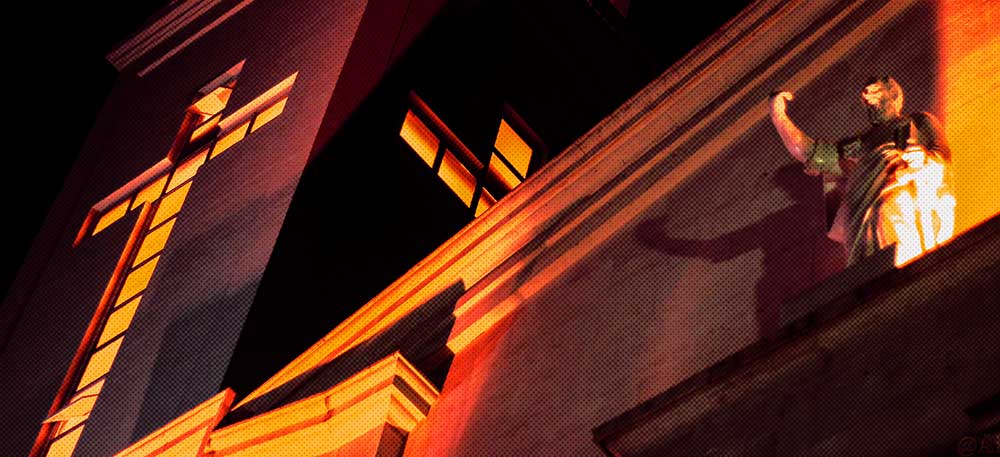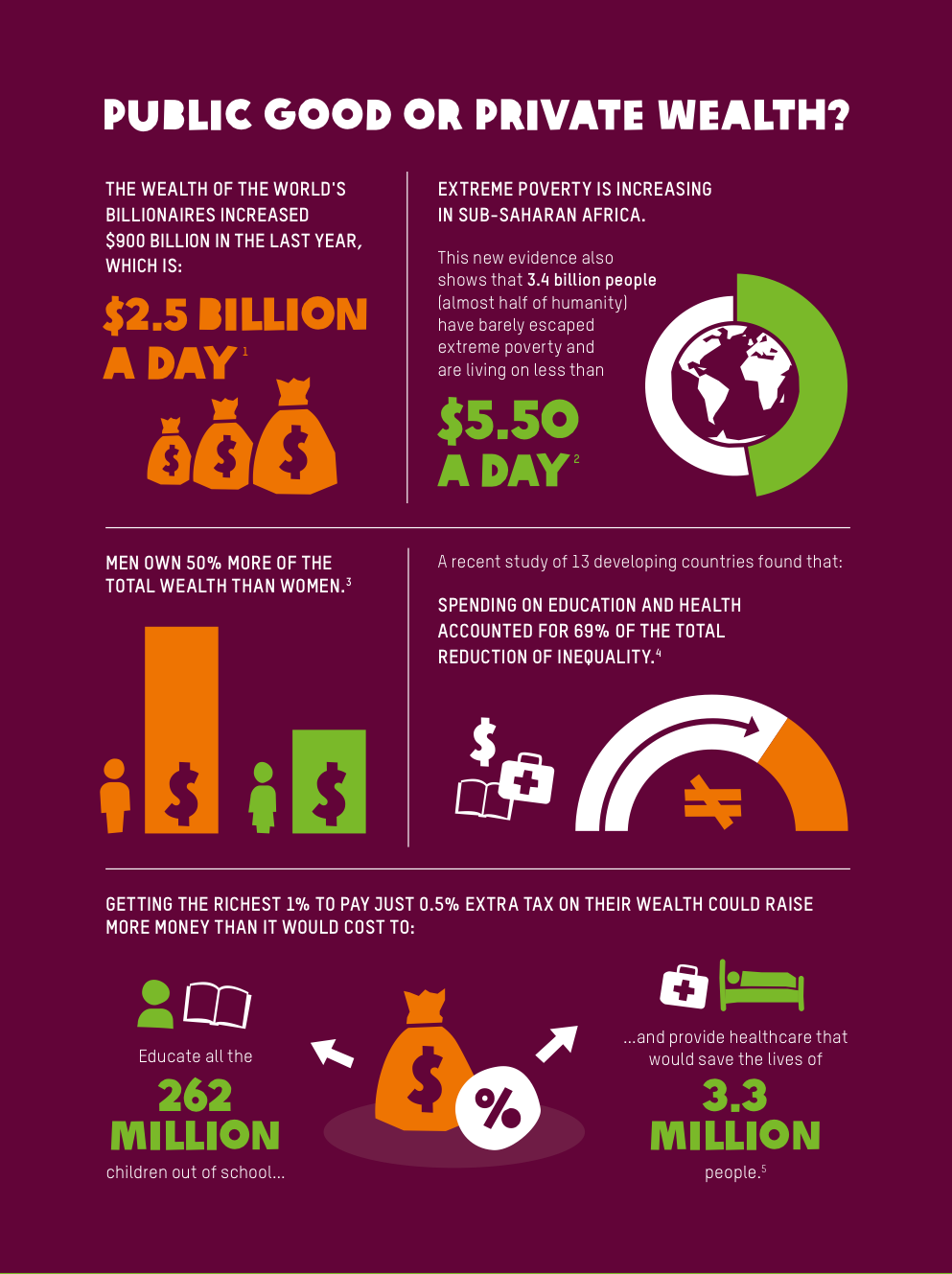This developmenteducation.ie 4-part series argues that any understanding of development which disregards the role of faith is lacking a key dimension for a substantial proportion, perhaps a majority, of humanity. But can we identify precisely what that key dimension offers which might otherwise be missing?
In the second part of the series, John Dornan and Suzanne Bunniss ask, is wealth the problem?
Jim Wallis, leader of the Sojourners Community in Washington DC, used to tell the story of a friend who decided to check how often the poor and oppressed were mentioned in the Bible. Taking a pair of scissors to an old Bible, he cut out every reference he could find. It took him a long time and when he had finished his Bible was full of holes and simply fell apart. For Jim Wallis, this was a metaphor for what Christians of all traditions have done: created a “holey” Bible by cutting out the poor.
Nowadays, it’s possible to buy a Poverty and Justice Bible, where the relevant verses are highlighted rather than cut out. But the story illustrates that poverty, and wealth, as we shall see, have been a central question for people of faith during recorded history.
Since Christians and Jews share the Old Testament as part of their sacred writings, the obligation to care for widows, orphans and strangers is a key tenet for people of both faiths.
Like the other Abrahamic faiths, Islam also has guidance for Muslims on how to deal with wealth:
- Wealth can be enjoyed, but do not let it distract you: Muslims are warned in the Quran to be on guard against greed. A Muslim should not save and hoard great sums of money, but should distribute it to those who are in need of it.
- It is never acceptable to earn a living by doing wrong: Muslims must earn their wealth in a lawful, or halal, way. It is not to be earned by selling or buying things that God forbids, such as alcohol or pork, or by engaging in illegal activities.[Quran 4:29]
- Practice charity toward the poor, orphans and those in need: The faith of Muslims is built on the five pillars of Islam, one of which is giving wealth to charity, or zakat. [Quran 2:177]
- Do not fear poverty. God will provide: A true believer should not fear poverty because God will provide for them. Some believers say that fearing poverty is the same as not trusting in God. [Quran 6:151].
- Giving of your wealth is the source of true prosperity: When one spends his wealth in the way of God there is no decrease in wealth. Charity increases wealth because God replaces it with something better and greater. [Quran 2:261]
While we would all like to think that poverty is “a bad thing”, we are often quite reluctant to question why over half the world’s population struggle to find the basic necessities of life, while an increasing number of people have unimaginable wealth.
Since its earliest days Christianity has had some harsh things to say about wealth and how it is acquired and used:
“Now an answer for the rich. Start crying, weep for the miseries that are coming to you. Your wealth is all rotting, your clothes are all eaten up by moths. All your gold and silver are corroding away, and the same corrosion will be your own sentence, and eat into your body. It was a burning fire that you stored up as your treasure for the last days. Labourers mowed your fields, and you cheated them – listen to the wages that you kept back, calling out; realise that the cries of the reapers have reached the ears of the Lord of hosts. On earth you have had a life of comfort and luxury; in the time of slaughter you went on eating to your heart’s content. It was you who condemned the innocent and killed them; they offered you no resistance.”
– James 5:1-6
In recent years, Oxfam has published a briefing paper to coincide with the World Economic Forum, a meeting of business and political leaders in Davos, Switzerland, every January. The main aim is to highlight the ways in which growing inequality between rich and poor hampers progress in achieving global poverty reduction. In 2019, Public Good or Private Wealth compared the wealth of a few individuals to the cost of health care, education and public services.
Compare these facts quoted in the report:
| 262 million children will not be allowed to go to school. | In the 10 years since the financial crisis, the number of billionaires has nearly doubled. |
| Almost 10,000 people will die because they cannot access healthcare. | The wealth of the world’s billionaires increased by $900bn in the last year alone, or $2.5bn a day. Meanwhile the wealth of the poorest half of humanity, 3.8 billion people, fell by 11%. |
| 16.4 billion hours of unpaid care work will be done, the majority by women in poverty. If all the unpaid care work done by women across the globe was carried out by a single company, it would have an annual turnover of $10 trillion – 43 times that of Apple. | Billionaires now have more wealth than ever before. Between 2017 and 2018, a new billionaire was created every two days. |
| Wealth is becoming even more concentrated – last year 26 people owned the same as the 3.8 billion people who make up the poorest half of humanity, down from 43 people the year before. | The world’s richest man, Jeff Bezos, owner of Amazon, saw his fortune increase to $112bn. Just 1% of his fortune is the equivalent to the whole health budget for Ethiopia, a country of 105 million people. |
The following infographic by Oxfam introduces some key facts:
Two Starting Points
“You ask me what poverty is. It is here, staring you right in the eye. Look at me! I live alone. I do not have enough food. I have no decent clothing and accommodation. I have no clean water to drink. Look at my swollen legs. I can’t get to the dispensary, which is too far for me to walk. I have to walk a mile to catch a bus. I cannot see very well. I can no longer do any farming. So don’t ask me to tell you what poverty is. Just look and see for yourself.”
– A grandmother in Fiji,
quoted in Christianity, Poverty and Wealth, the findings of Project 21, APRODEV, 2003).
Watch Global Wealth Inequality – showing the widening gap between the richest and poorest sectors of global population.
The combination of the video animation and the words of a poor Fijian woman serve to remind us that poverty has a human face, impacting on the lives of the billions of members of the human family who struggle daily to achieve their basic needs of food and shelter, to say nothing of health, education and safety.
However, statistics and testimonies about poverty are only part of the story. Jim Wallis again: among 50 predictions for the twenty-first century he included:
“1. Faith in the new millennium will be defined much more by action than doctrine.
50. Hope will become the most essential ingredient for social change.”
– God’s Politics, Jim Wallis, 2005
While Christianity, in common with the other major world faiths, has a lot to say about wealth and poverty, it shouldn’t end there. Live Simply is just one initiative encouraging people to question their personal lifestyles as a way of showing solidarity with poor people both here and elsewhere and to make the link between faith and action more explicit.
- What words or images stay with you? What surprised or shocked you? How do you feel about what you heard and read?
- Are statements by churches, aid organisations and anti-poverty activists just too idealistic? Can the solidarity actions of committed individuals and groups really make a difference?
- What actions do you think would be most effective?
Some case studies
- Faith in a Better World: this portal on Catholic Social Teaching provides a way for individuals to learn more about what their faith teaches on major social issues, contains a useful resources library (including videos and podcasts) and offers suggestions for making changes on a personal and community level
- Poverty Truth Commission: set up by Faith in Communities Scotland to ensure that decision makers take the views of those directly affected when making policy “Nothing about us, without us, is for us”
- Zakat Foundation of America: an American relief and development organisation, promoting zakat, the third pillar of Islam, as a vehicle for social change. Zakat is an obligatory claim on the wealth of the affluent to empower the poor. The site offers a resource centre, a very interesting ‘calculator’ for assessing Zakat, videos and testimonies plus ideas on becoming involved.
About the series
This 4-part series explores three key issues – poverty and wealth, climate change and women’s rights – from an explicit faith perspective, and introduces a range of activities, links and resources for facilitating learning exercises and workshops.
The next part in the series, published tomorrow, reviews faith groups and action over many years on environmental issues such as climate change, sustainability and our collective responsibilities to each other on a shared planet.
Take a look at other parts in the series: part 1. Faith, justice and development; part 3. The Earth is our home; part 4. Women and development
- Suzanne Bunniss (PhD) is a social science researcher and charity director of FireCloud, based in Clydebank, Scotland.
- John Dornan has been a development education activist for over four decades and recently retired as project manager of global education at the Conforti Institute based in Coatbridge, Scotland.
- Note: this series has been developed with additional reporting, commentary and review by Colm Regan of developmenteducation.ie and Stephen Farley of Trócaire.


